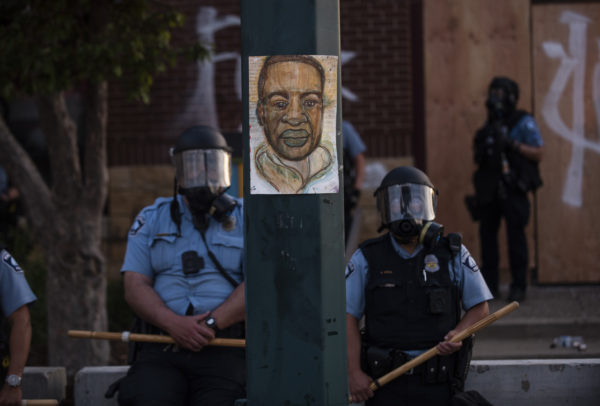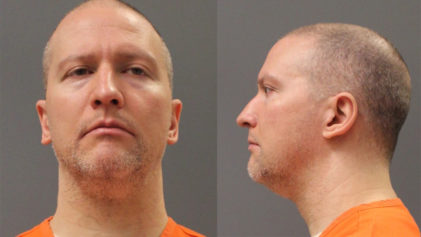The Minneapolis City Council approved a ban on the use of neck restraints and chokeholds as part of an agreement with the Minnesota Department of Human Rights.
The deal came after the Minnesota Human Rights Department filed a civil rights charge against Minneapolis Police for the death of George Floyd, reported Minneapolis newspaper the Star Tribune.

“Black, Indigenous, and communities of color have suffered generational pain and trauma as a result of systemic and institutional racism and long-standing problems in policing,” a draft stated. “This continuous harm was once again highlighted by the in-custody death of George Floyd. The Parties agree that many previous efforts have not resolved the historic problems in policing in this community.”
Floyd died on Memorial Day after former MPD Officer Derek Chauvin pressed a knee into his neck for more than eight minutes. Chauvin was arrested on May 29 and charged with third-degree murder and manslaughter. His murder charge later was upgraded to second-degree murder.
Three other officers, Alexander Kueng, Thomas K. Lane and Tou Thao, were arrested on Wednesday. Each face one count of aiding and abetting second-degree murder and aiding and abetting second-degree manslaughter.

Video footage of Floyd’s fateful arrest showed Thao standing and talking to civilians as Chauvin kneeled on his neck. Kueng and Lane were restraining his legs and back, respectively. Lawyers for Lane and Kueng painted their clients as rookie officers who were afraid to defy a senior officer.
“What is my client supposed to do but follow what the [senior] officer says?” Earl Gray, Lane’s attorney, said during a hearing on Thursday. “The strength of this case, your honor, in my opinion, is extremely weak.”
“What was [Lane] supposed to do,” Gray stated. “Go up to Mr. Chauvin and grab him and throw him off?”
Thomas Plunkett, Kueng’s attorney, used a similar argument during the hearing. Kueng reportedly told the other officers “you shouldn’t do that” while Floyd was being detained, per NBC News.
“At all times Mr. Kueng and Mr. Lane turned their attention to that 19-year veteran,” Plunkett said. “[Kueng] was trying — they were trying to communicate that this situation needs to change direction.”
The agreement appears to answer those questions.
The document states Minneapolis Police would have to update its manual to include a policy “to prohibit the use of all neck restraints or choke holds for any reason,” according to the Star Tribune.
The agreement also states that any officer, regardless of rank or years on the force, who “observes another member of the City’s Police Department use any unauthorized use of force, including any choke hold or neck restraint…has an affirmative duty to immediately report the incident while still on scene by phone or radio to their Commander or their Commander’s superiors.”
If an officer witnesses excessive force, they must “attempt to safely intervene by verbal and physical means.” Any member of the force who violates the policy “shall be subject to discipline to the same severity as if they themselves engaged in the prohibited use of force.”
The deal also included a rule requiring law enforcement to get approval from the police chief or a designee to use “crowd control weapons,” like tear gas and rubber bullets. Any use of such items must be documented.
Mayor Jacob Frey signed off on the agreement on Friday. It still must be approved by a judge.
“This is a moment in time where we can totally change the way our police department operates,” Frey said. “We can quite literally lead the way in our nation enacting more police reform than any other city in the entire country and we cannot fail.”


